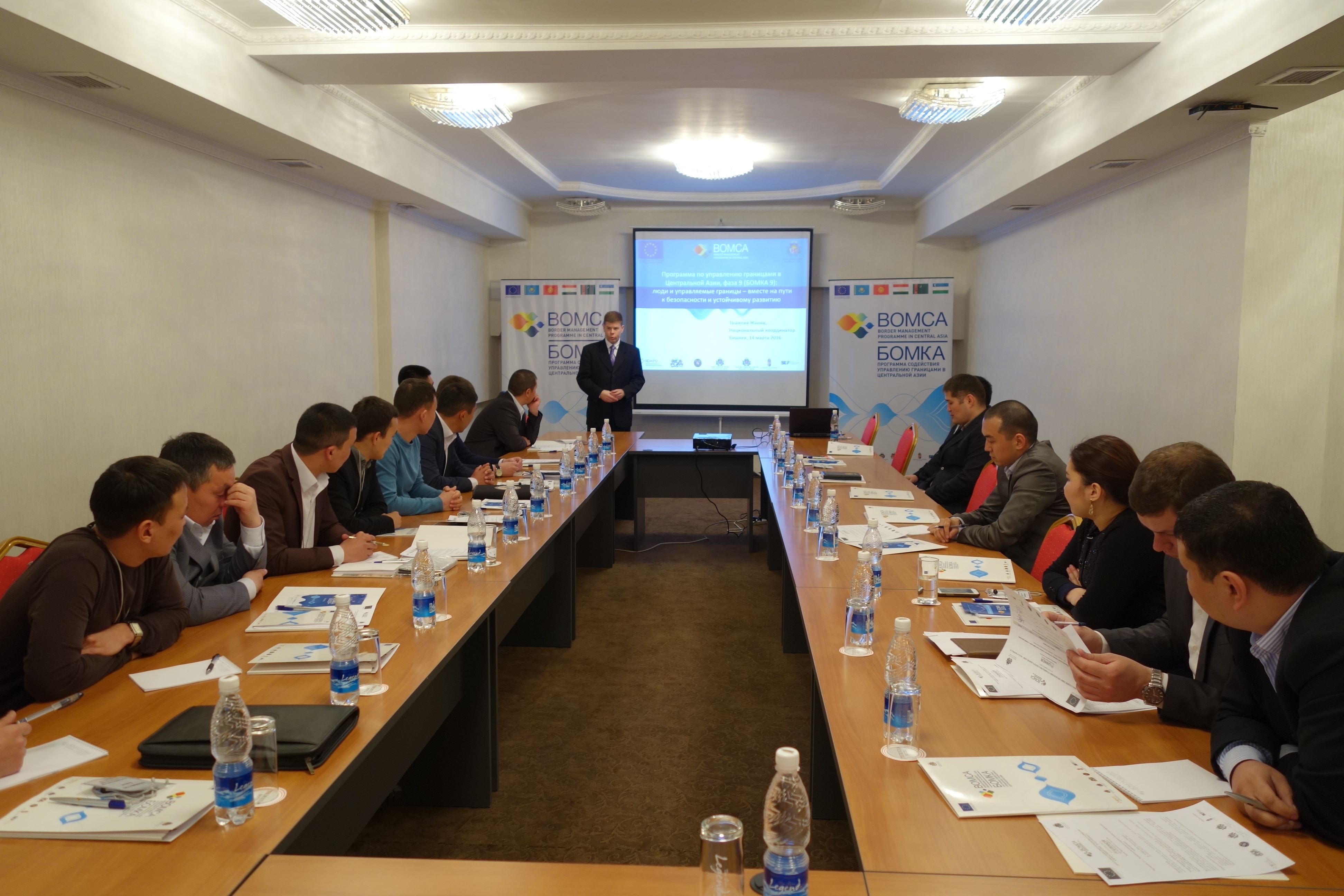Between March 9 and March 18 BOMCA-invited trainer-expert Mr. Juris Madzuls, Lecturer at the State Border Guard College of Latvia, conducted national workshops on identification and profiling techniques for relevant national experts from the Border Service of the National Security Committee of Kazakhstan, the Migration Police Department of the Ministry of Interior of Kazakhstan, the State Border Service of the Kyrgyz Republic, the State Migration Service of the Kyrgyz Republic, the Ministry of Internal Affairs of the Kyrgyz Republic, and the State Security Committee of the Kyrgyz Republic. 38 officers and officials from Kazakhstan and Kyrgyzstan participated in 3-day training workshops in Astana and Bishkek respectively.
This BOMCA initiative is intended to improve existing legal and procedural instruments to manage both regular and irregular migration at borders and to manage in a better way the current challenges in identification of potentially dangerous persons which may pose a risk to the public order and security. It aims to present EU good practices in the area of identification and profiling of different groups of travellers and to introduce modern mechanisms in recognition of different categories of persons crossing the border.
“We brought good EU practices in effective identification and profiling of border violators. There are many modern approaches, sophisticated systems and IT technologies, but no IT tool could replace the human brain”, said Mr. Madzuls.
During the workshops the trainees went through a number of key topics in relation to the operational and criminal profiling and identification of state border perpetrators, possibly wanted persons and other persons whose border crossing is in the focus of law enforcement and national security agencies. Components of identification such as face detection, assessment of danger, non-contact lie detection, analysis of traveller behaviour and countenance, and primary surveillance were learned in detail and practiced. Techniques of luggage and transportation means searches were also evaluated as an important part of the complex profiling. The training process effectively combined theory and practical exercises, and was accompanied by interactive tools and methods such as presentations, practical examples, videos and visualisation slides.
In Astana, the workshop was conducted in cooperation with the OSCE Centre. In Bishkek, UNHCR Protection Officer Mr. Ivan Saleyeu facilitated a session on identification and profiling of asylum seekers. This synergy of international stakeholders brought an added value to the workshop in terms of combination of experience, strengthening cooperation and expanding the information and knowledge flows.
The benefits of the workshops were recognised by the participants in both countries in terms of the strengthening of knowledge and use of the skills gained in their future duties. “The workshop was very useful, productive and informative. For me as a border service officer the issue of identification and profiling is crucial. I significantly enriched my knowledge in interviewing techniques and will use the new experience in my duties”, said an officer from the Kyrgyz Republic international border crossing points who participated in the workshop.
Similar workshops are planned to be conducted in all 5 Central Asian countries and based on their results the EU experts will develop recommendations for aligning existing profiling and identification mechanisms at the national level with the international standards and good practices.

